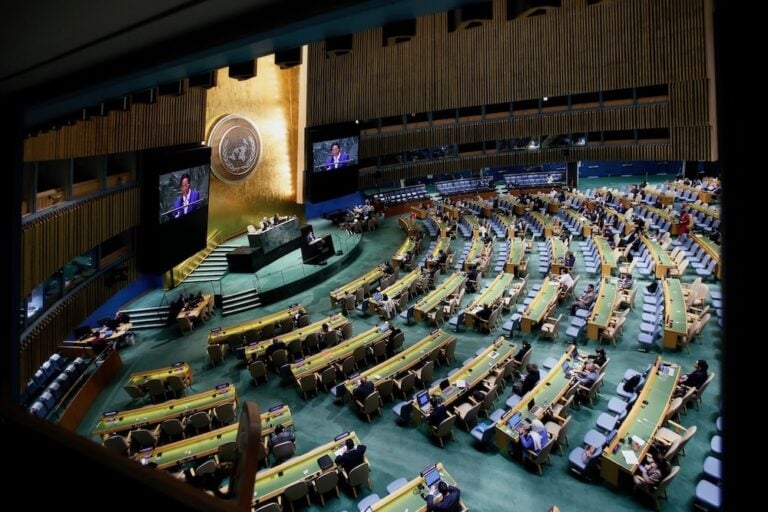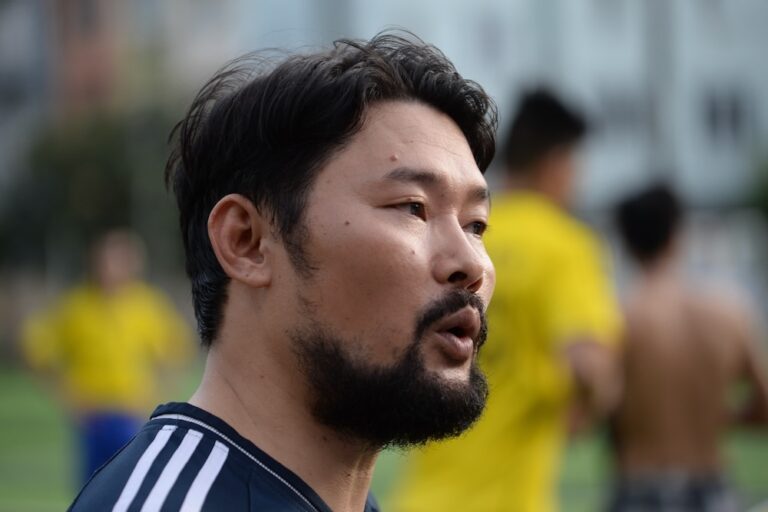RSF condemns the long jail sentences imposed on a total of seven bloggers, cyber-dissidents and human rights activists in rushed sham trials.
(RSF/IFEX) – Reporters Without Borders firmly condemns the long jail sentences imposed on a total of seven bloggers, cyber-dissidents and human rights activists in rushed sham trials. Sentences totalling 33 years in prison were passed on four dissidents who were tried by a court in Ho Chi Minh City on 20 January 2009.
“The Vietnamese authorities have embarked on an all-out witchhunt for pro-democracy activists and a demonization of the Internet, whose potential for disseminating news and information terrifies them,” Reporters Without Borders said. “Allegations of an internationally-inspired conspiracy do not hold water. These peaceful activists are just paying the price of the paranoia and power struggles within the ruling Communist Party in the run-up to next year’s national congress.
“This wave of arrests will not put an end to the debate about the country’s future. The four dissidents have become symbols that are galvanising the struggle for freedom of opinion and expression in Vietnam and abroad. The international community must condemn these heavy sentences and put pressure on the government to release the activists.”
Reporters Without Borders added: “In particular, we urge the European Union to suspend its human rights dialogue with Vietnam until the activists are released, and we urge ASEAN to express its mounting concern following the latest sentences.”
In the 20 January trial, the well-known human rights lawyer Le Cong Dinh was sentenced to five years in prison while the pro-democracy activists Le Thang Long, Nguyen Tien Trung and Tran Huynh Duy Thuc were sentenced to five, seven and 16 years in prison, respectively. Dinh, Long and Trung were also sentenced to three years of house arrest on completing their jail terms, while Thuc was given five years of house arrest.
The judge convicted all four of “endangering national security” and “organising campaigns in collusion with reactionary organisations based abroad” that were “designed to overthrow the people’s government (. . .) with the help of the Internet.” Relatives, diplomats and foreign journalists were barred from the courtroom but were allowed to follow the trial on a TV set in an adjoining room. Dozens of policemen were stationed around the courthouse.
Dinh and Trung admitted under pressure to breaking the law and to being influenced by western values, but denied intending to overthrow the government. This was taken into account by the presiding judge when he passed sentence. Thuc, who got the longest sentence, reportedly defied the court and refused to admit his guilt.
Thuc’s brother told the BBC that Thuc had testified that he was subjected to a great deal of pressure and mistreatment during the investigation and had asked to be tried by different judges, a request that was rejected. Thuc had also insisted on his innocence, his brother said. Although only accused of being an accomplice, Long also refused to admit to any wrongdoing by sending articles to a foreign radio station.
The family of Trung, who studied in France, told Reporters Without Borders the sentence was “too severe for pro-democracy activities.” A member of the family added: “We condemn the charge against Trung of having tried to overthrow the government as all he did was exercise his rights as a citizen. His aim was a better future for Vietnam, a democratic one that respects human rights. We are going to continue to campaign for him to be released as soon as possible.”
Three other activists who had posted their views on the Internet received prison sentences on 19 January on appeal. They included the poet Pham Van Troi four-year sentence), the former teacher Vu Van Hung (who was given a three-year sentence) and the poet Tran Duc Thach (who also got three years).
Sign the petitions on http://www.freetrung.tk and http://www.thepetitionsite.com/petition/294288684


